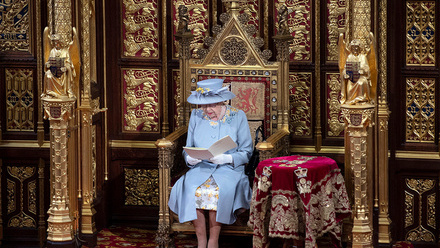New OEP Report: “Environment in England remains under serious threat”
The Office of Environmental Protection, UK watchdog created under the Environment Act 2021, recently published its progress report on the state of the environment in England. The Environment Act (2021) included a long-term Environmental Improvement Plan (EIP) to complement the 2018 25 Year Environment Plan (25 YEP). This report provides an assessment of the Government’s progress in improving the natural environment for the period 2021/2022 in line with these plans.
Key Findings
- The report concludes that the environment in England remains under serious threat, and there has been a lack of progress in addressing existential risks, including from climate change. 25 YEP has failed to bring the changes required.
- The review found that there have been some improvements regarding climate change mitigation but concerning declines in biodiversity with species abundance declining 17% between 2013 and 2018.
- Of the Government’s 23 environmental targets, 0 were on track. 14 were demonstrably off track and 9 were data deficient.
- Climate change is exacerbating the impacts and scale of challenge for the Government.
The report goes on to criticise the lack of baseline data for the Government’s 25 Year Environment Plan which has undermined progress. It recognises the significant challenges the Government has faced since 2018 but states this has only served to exacerbate a lack of coherence between Government departments. It then lays out a vision for an improved EIP.
Recommendations for an effective new EIP
- Translate vision into policies, commitments, and actions across Government departments,
- Establish clear governance arrangements to drive local delivery,
- Unifying overall delivery plan and one plan for each goal area (something 25 YEP lacked),
- New long-term targets set with clear and achievable interim targets,
- Make use of robust and current data and analysis aligned with all targets,
- Evaluation framework,
- Diagnoses of adverse trends for targeted responses,
- Develop progressive assessment regimes.
Conclusions
The report states that the current pace and scale of action will not deliver the changes necessary to improve the environment in England significantly, as required by the Environment Act 2021. The Government is urged to do more to bridge the gap between the current reality and its vision for the future if environmental improvement is going to be delivered for the next generation.
Recommendations from the OEP 2023 Report
- Recommendation 1: Implement the next Environmental Improvement Plan effectively.
- Recommendation 2: Develop and implement clear governance.
- Recommendation 3: Develop and implement unifying delivery plans.
- Recommendation 4: Set and vigorously pursue clear and achievable interim targets that are as ambitious as possible in the areas needing most attention.
- Recommendation 5: Implement an effective monitoring, evaluation and learning framework.
techUK have reached out to the OEP to understand how they will be interacting with the private sector. Although their recommendations directly affect public bodies, their recommendations will likely impact companies.
This will be felt most outside of the tech sector but there are ways that data and new technologies will play a role in the ambitions stated in this report. There are several references to investment in technology, particularly as it relates to mitigating air pollution and implementing Biodiversity Net Gain.
Digital Infrastructure, labelled Telecoms, digital and ICT, gets a small mention in this report, highlighting its need for a better Climate Adaptation plan based on the recommendations of the Climate Change Committee report (2021). techUK submitted to the evidence gathering stage of the CCC’s 2021 report alongside the EC-RRG. The CCC assessed the risk magnitude to be ‘medium’ to ‘high’, and the plan score of the sector to be ‘low’.
For more information on this report or any others mentioned, please get in touch with [email protected] or [email protected]. Sign up to our Climate Strategy and Resilience Group for more information on our work in this space, and our Responsible Business Conduct group for broader work on sustainability.
techUK – Committed to Climate Action
By 2030, digital technology can cut global emissions by 15%. Cloud computing, 5G, AI and IoT have the potential to support dramatic reductions in carbon emissions in sectors such as transport, agriculture, and manufacturing. techUK is working to foster the right policy framework and leadership so we can all play our part. For more information on how techUK can support you, please visit our Climate Action Hub and click ‘contact us’.


Craig Melson
Craig is Associate Director for Climate, Environment and Sustainability and leads on our work in these areas ranging from climate change, ESG disclosures and due diligence, through to circular economy, business and human rights, conflict minerals and post-Brexit regulation.











